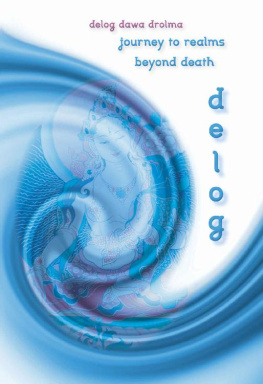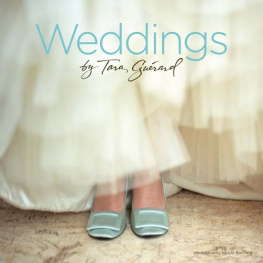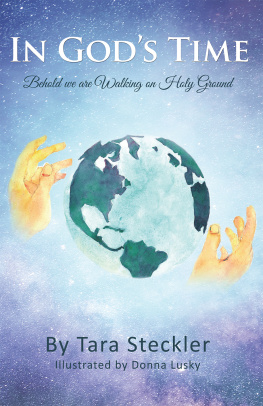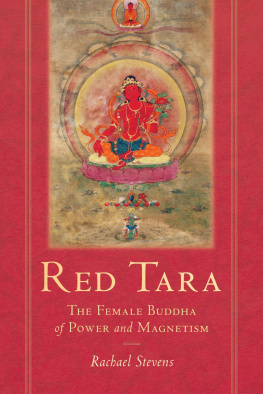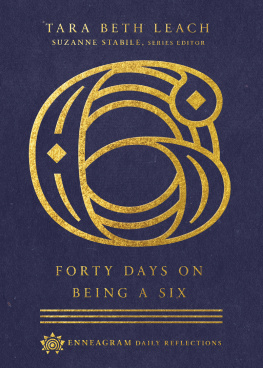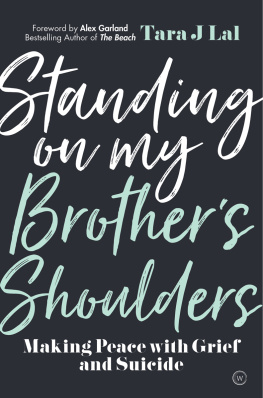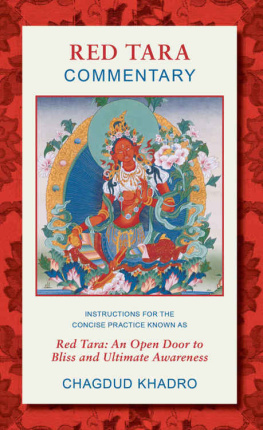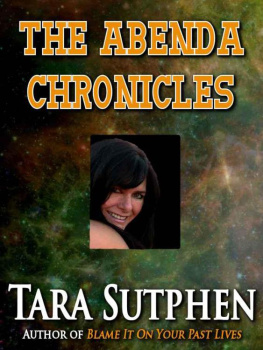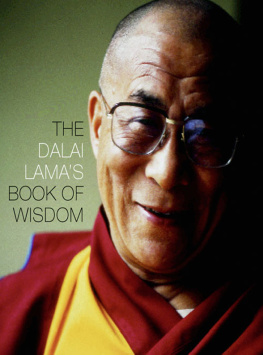Published by Padma Publishing
P.O. Box 279
Junction City, CA 96048
Padma Publishing 1995
eBook 2015
www.tibetantreasures.com
All rights reserved. No part of this book may be reproduced in any form or by any means, electronic or mechanical, including photocopy, recording, or any information storage or retrieval system, without permission in writing from the publisher.
Printed in the United States of America
Cover by Linda Baer
Library of Congress Cataloging-in-Publication Data
Delog Dawa Drolma
Delog: journey to realms beyond death / Delog Dawa Drolma; translated by Richard Barron.
p. cm.
ISBN 1-881847-05-5
1. Intermediate stateBuddhism. 2. Eschatology, Buddhist. 3. Near-death experienceReligious aspectsBuddhism. I. Barron, Richard. II. Title
BQ4490.D37 1995
294.3423dc20 94-22389
CIP
ISBN 1-881847-05-5 Paperback
eISBN: 978-1-8818474-8-9
Contents
by Chagdud Tulku
Introduction
Chagdud Tulku
AS A CHILD IN TIBET, I sometimes found my mother, Delog Dawa Drolma, surrounded by an audience listening with utmost attention as she told of her journeys to other realms. Her face was radiant as she spoke of the deities in the pure realms; tears flowed as she described the miseries of hell beings and pretas, or tormented spirits. She told of encountering deceased relatives of certain people, and she relayed from the dead to the living concerns about unfinished business (perhaps buried coins or jewels that could not be located) or pleas for prayers and ceremonies. She also brought back spiritual advice from high lamas who had passed from this world, to which lamas on this side of death responded with deep respect.
My mother was revered throughout Tibet for her extraordinary powers as a lama, but she was more famous for being a delog (pronounced DAY-loak), one who has crossed the threshold of death and returned to tell about it. Hers was not a visionary or momentary near-death experience. For five full days she lay cold, breathless, and devoid of any vital signs, while her consciousness moved freely into other realms, often escorted by the wisdom goddess White Tara. She undertook her journey as a delog according to instructions she had received from Tara in visions, but against the wishes of her lamas, who pleaded with her not to take such a risk.
It is remarkable that she, a young woman of sixteen, had so much confidence in her meditation that she prevailed over very wise, much older lamas. However, she herself had been recognized as an emanation of White Tara, a powerful force of enlightened mind for the longevity and liberation of sentient beings. Throughout her childhood Dawa Drolma showed a remarkable depth of compassion. No beggar who came to our tent left without her offering whatever she could put her hands onmy family took to hiding its valuables lest she give them away.
Our familys black felt tent could hold four hundred people during great ceremonies. Dawa Drolma was honored with a throne along with the other high lamas, including her four uncles, who were famous throughout eastern Tibet. She herself was a perfectionist in the performance of ritual. Several years ago I met a monk who remembered her wrath when he blew his kangling (ceremonial trumpet) poorly. Her presence inspired both care in the effortful steps of practice and recognition that the underlying nature of these steps is effortless awareness.
Her dreams and visions were revelations of realization, and those leading up to her delog experience were unmistakably clear in their instructions. The fears of the lamas who urged her not to undertake such a journey, but rather to fast, take medicine, and perform ceremonies, were not groundless, howeverafter she had died and gone to Padmasambhavas pure realm, she met her late uncle, the revered master Khakyod Wangpo, who warned her that it would be dangerous for her to remain and told her that she should return to the human realm to benefit beings.
Later, when she traveled through the bardo, or intermediate state between death and rebirth, and the hell and preta realms, an emanation of the feminine deity Vajravarahi expressed doubt that Dawa Drolma would be able to bring about much benefit. It may be necessary for you, my girl, to return to the human realm. Buthaving taken rebirth as a woman, you will have little authority. Sentient beings in these degenerate times will be hard put to believe that your accounts are true.
White Tara took issue with this statement, saying, She is a heroine with a courageous mind, and adding that she had not listened to those who had tried to delay her. If she goes back to the world of humans, she can tell of the moral choices of accepting virtuous actions and rejecting harmful ones. She can turn the minds of sentient beings.
The direct experience of other realms did indeed invest my mother with great spiritual authority when she taught of correct conduct and karmic cause and effect. No one doubted her words, not only because great lamas such as Tromge Trungpa had witnessed her corpse coming back to life, but also because she knew the whereabouts of buried coins and actions of the deceased before their deathsthings that she could not possibly have known without having been told directly by those she encountered as a delog. Later in her life one of the most generous contributors to her projects was a Tibetan businessman who had been an adamant nonpractitioner of religion until my mother conveyed to him information about buried money from his deceased sister.
Delog Dawa Drolmas account here is as vivid as that of a tourist describing a country he or she has visited, yet hers is really a journey of consciousness through the pure and impure displays of mind. It begins when, as instructed by Tara, I let my mind settle. In a spacious and extremely blissful frame of mind, I experienced a state of sheer lucidity. I was fully aware of the fundamental condition of my mind in all its ordinariness. Because that awareness was unimpeded, it was as though I could hear all sounds and voices in all lands, not just those in my immediate environment.
When ordinary grasping and aversion and the ignorance of objectsubject duality completely fall away, one experiences uncontrived, naked awarenessabsolute, nondual, beyond concept, emptiness replete with all pure qualities and the potential to manifest as appearance inseparable from emptiness. This is buddha nature, obscured and unrecognized in sentient beings, but completely revealed in enlightened ones.
To provide benefit, enlightened beings spontaneously emanate realms of pure appearance such as Padmasambhavas Copper-Colored Mountain of Glory, Avalokiteshvaras Potala Mountain, and Taras Yulokod. Practitioners who have purified their mindstreams and who have accumulated vast merit through their virtue can experience pure realms in visions, in dreams, or, as my mother did, as a delog. Her account is quite specific in its cosmological geography and detailed in its descriptions, yet it is clear that the realms she visited are the rich display of the nature of mind, experienced when meditation breaks through the limitations of ordinary perception.

